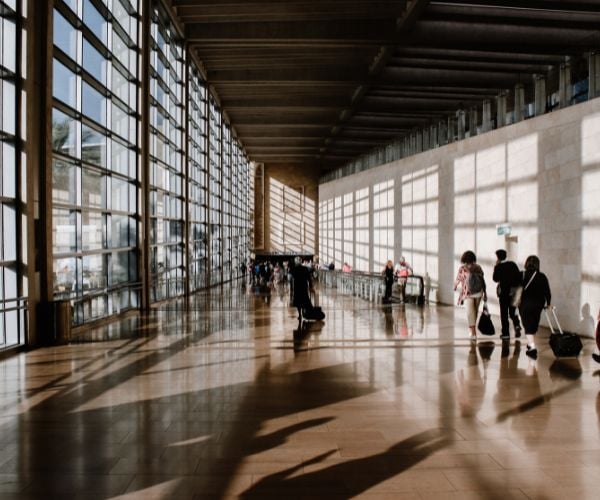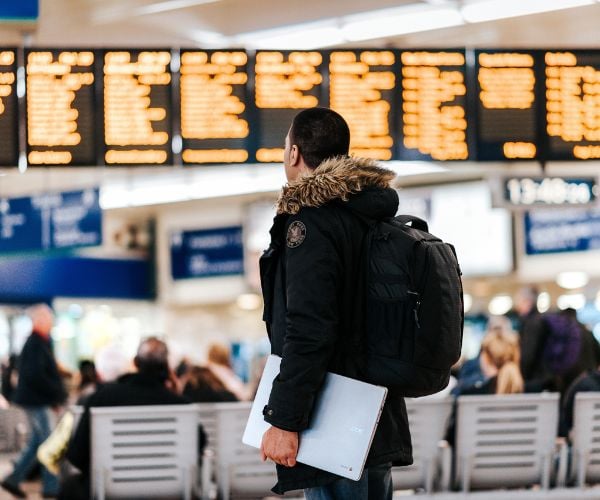From business to leisure travel – and even bleisure (business mixed with leisure travel) – the travel landscape isn’t immune to trends and fads. While some elements of travel – particularly in the post-pandemic era – haven’t changed much, there are others that have changed, and drastically.
Whether or not these trends are here to stay, here’s what’s changing in the travel industry in the coming year – as well as why you should travel more.
1. Local communities are at the forefront
Today’s travellers are seeking out more and more experiences. In particular, local (and sustainable) ones. Travellers want an authentic stay when visiting various destinations, including eating local food and interacting with locals.

Because of this, 2023 is likely to usher in travel packages and itineraries that are more focused on local communities. It will be essential for hoteliers and travel businesses to focus on leveraging the local culture and community, so they can engage with this new generation of travellers.
2. Sustainability is here to stay
As the world becomes more and more aware of the state of the earth, travel businesses looking to stay relevant must lead the way, follow suit, or face becoming irrelevant. Since many travellers are seeking out more sustainable travel options, more and more hotels and tour companies are taking big (and important) steps to be as sustainable as possible. Even the hotel industry, which has slowly embraced sustainability, has seen a noticeable transition to more eco-friendly designs and operations.

Sustainability counts on more locally created amenities and activities. This includes accommodation options that incorporate more local products into guestrooms and restaurants, and tour operators making sure their tours are environmentally conscious and create jobs in local communities.
The fact of the matter is: sustainability is a hot topic. And so is energy. This is likely to influence travel-related businesses to pay more attention to energy consumption, by using LED lighting and solar panels to reduce their carbon footprints. Either way, more sustainable travel is firmly planted for 2023 and beyond.
3. Family-friendly travel is important
The future of hospitality is all about family. Families are travelling together more than ever before. Meaning accommodation, as well as travel services and packages, should be geared towards multi-generational and mixed-aged travellers.

Families that travel together normally give preference to children-friendly (and pet-friendly) restaurants and places to stay. This also means they’ll also be looking for furnishings, amenities, and offerings that meet these requirements.
4. More opportunities to switch off
In the digital age of hybrid and remote work, it’s hard to fully disconnect. The idea of being somewhere remote with no signal is becoming more and more appealing to travellers. . . So now, hotels are actually focused on giving guests a way to unplug from their devices. With tranquil rooms with hammocks and cabanas which allow guests to escape the noise and distractions of their daily lives.

While others are adding extra chill-out zones on-site with the edition of libraries, meditation rooms, and even nap pods so guests can go somewhere quiet to take a much-needed break from the hustle and bustle of life. On the flip side. . .
IMPORTANT NOTICE:
If you are reading this article anywhere other than on A Luxury Travel Blog, then the chances are that this content has been stolen without permission.
Please make a note of the web address above and contact A Luxury Travel Blog to advise them of this issue.
Thank you for your help in combatting content theft.
5. The travel industry continues to embrace technology
This comes as no surprise, since tech plays a central role in the global travel forecast, especially business travel. While it may be the most obvious travel trend for 2023, digitalization is everything these days. A recent report from Egencia says 96% of travellers value disruption management tech, and 74% are more likely to use digital tools to address travel disruptions.

We’re in an age where travellers spend less time waiting in airport lines, thanks to biometric technology. And trip disruption technology means travellers receive real-time trip updates on their mobile phones from travel companies. Even getting healthcare while abroad is simpler thanks to telemedicine and digital health platforms that help travellers to find appropriate medical assistance even if they’re in a foreign country.
Technology has evolved beyond airports and train stations to make travel easier, and just as much as some travellers want to unplug, others seek and expect the convenience of staying connected. This is particularly true for digital nomads or those who make a living off of their travel experiences.
6. Business travel is still catching up
Even though it seems like we’ve gotten past the worst of the pandemic, business travel is still experiencing a bit of a slowdown. While it is expected to recover fully, other aspects like trade issues and political tensions also influence the recovery rate.

Besides, practices like video conferences and other remote communication channels are likely to stay, which means avoiding unnecessary travel – and the expenses that go with it. This goes hand-in-hand with the sustainability movement and companies wanting to reduce their carbon footprint.
7. Bleisure travel is on the rise
Who said you can’t mix business with pleasure?
As far as travel trends in 2023 go, bleisure travel – trips that combine business and leisure – is proving to be a significant outcome of the demographic shift in corporate travel. This is partly thanks to the younger workforce.

Although 92% of companies suspended business travel during the early stages of the pandemic, pre-pandemic figures suggested 90% of millennial business travellers coupled their business trips with leisure activities. And they’re even willing to extend their trips to do so.
So, why should you travel more in 2023?
As travel evolves and the businesses within the industry do as well, travellers will have a lot to look forward to. From technological convenience to more sustainable tourism practices, travel in 2023 is offering travellers more intuitive, personalised experiences.
With opportunities that give tourists the chance to support more local communities, spend more time in nature (disconnected from technology), and explore emerging tourism markets in exotic locations, the question shouldn’t be why travel, it should be why not travel more next year. Here are some destinations expected to take centre stage in 2023:
- Alaska: With amazing summer weather and easy logistics from the US, Alaska has become a popular summer vacationing destination. (Tip: it’s recommended to book your trip at least 9 months in advance).
- East Africa: For travellers who’ve for their heart set on African wildlife – Tanzania and Kenya are great options for 2023. Opt for November to enjoy the short rainy season.
- Europe: With destinations like Greece, Italy, the UK, and France, seeing record tourist numbers this past summer, consider heading to less crowded places like Malta, Corsica, the Azores, or Wales.
- New Zealand: An ever-popular tourist location, especially for travellers seeking out an adventure. If you’re looking for an incredibly beautiful backdrop to get lost, New Zealand is always a great choice.
With 2023 only a few weeks away, it’s time to start making those travel plans – what’s your travel bucket list destination for 2023?
Efrat Sagi-Ofir is CRO & Founder of Air Doctor. Air Doctor is a startup that connects travelers to a global network of 20,000 local medical doctors through an easy-to-use app, to receive appropriate medical care from anywhere in the world.
If you would like to be a guest blogger on A Luxury Travel Blog in order to raise your profile, please contact us.

